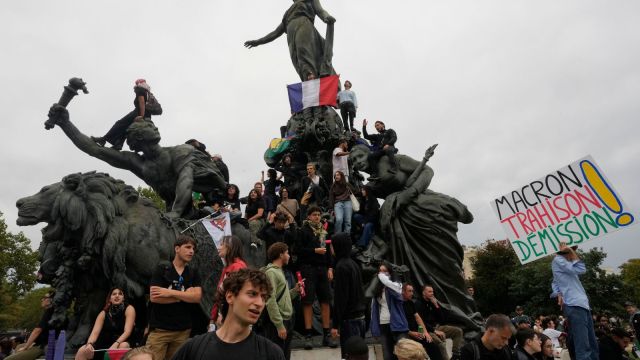Tens of thousands of demonstrators have taken to the streets across France to protest the nomination of Michel Barnier as the country's new prime minister. The protests, led by trade unions and left-wing political parties, erupted after President Emmanuel Macron chose Barnier for the position following an inconclusive election. While the left secured the largest number of seats in the National Assembly, their candidate for prime minister, Lucie Castets, was rejected by Macron.
Protesters are gathering in major cities such as Paris, Marseille, Nantes, Nice, and Strasbourg, demanding the resignation of Barnier, who previously served as the European Union's chief Brexit negotiator. Jean-Luc Mélenchon, leader of the radical left-wing France Unbowed party, has called for mass mobilizations, describing Macron’s move as a "coup" against democracy. Mélenchon joined the protests in Paris, delivering a fiery speech from a float, with demonstrators chanting slogans like "denial of democracy" and "stolen election".
Critics of Macron's decision argue that the nomination of Barnier will push the government to rely on support from the far-right National Rally party, which has already indicated it won't automatically vote against him. This has stoked fears among the left that Barnier's administration may be heavily influenced by far-right lawmakers. Lucie Castets, the left's rejected candidate, warned that France now has "a prime minister completely dependent on National Rally", signaling further divisions in the National Assembly.
Despite the escalating protests, Barnier has pressed ahead with efforts to form a new government. On Saturday, he visited a children's hospital in Paris, emphasizing the importance of public services while cautioning healthcare workers that his government would not be able to deliver immediate solutions. His comments have been criticized by left-wing leaders as lacking ambition in the face of growing public dissatisfaction.
Internal tensions within the left-wing coalition are also surfacing as Socialist figures criticize their own bloc's inability to secure the prime ministership. Paris Mayor Anne Hidalgo remarked that Macron had considered Bernard Cazeneuve, a former Socialist prime minister, for the role, but he was rejected by his own party. Other Socialist leaders, like Karim Bouamrane, have expressed frustration at the left's unwillingness to compromise, leaving them empty-handed in the prime ministerial race.
As protests continue, France faces a deepening political deadlock, with President Macron attempting to form a stable government while navigating growing public discontent. The outcome of Barnier's tenure as prime minister remains uncertain, but with widespread protests and a fragmented Assembly, the road ahead is likely to be tumultuous.

Commenti
Posta un commento